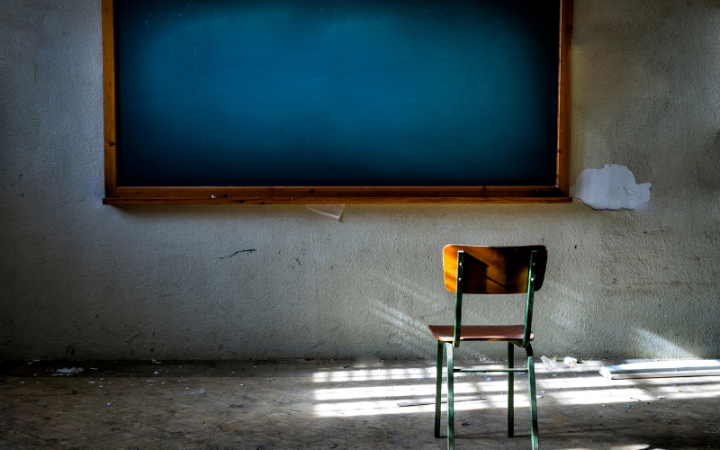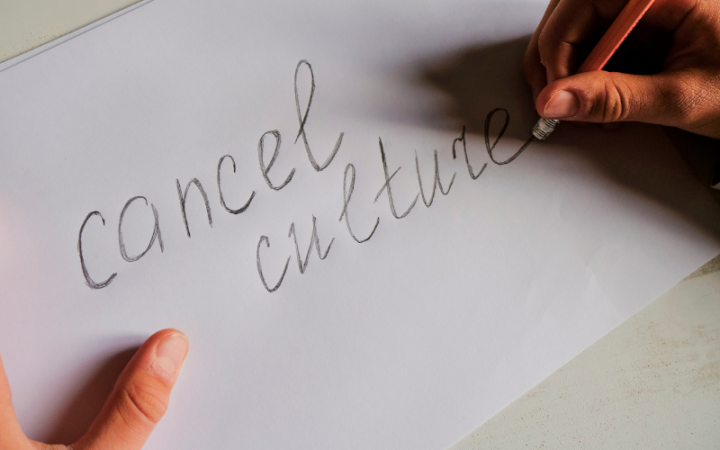
I’m sure most people have heard of Some Kids I Taught and What They Taught Me by Kate Clanchy, and the controversy about it. I thought of reviewing the book at the time (which I borrowed via my local Borrowbox library app). However I rarely write negative reviews. And from the language I read she had used, I was fairly sure a review would have to be negative.
I was correct.
The Book’s Language
So, why do some people object to Some Kids I Taught and What They Taught Me?
Now, I was half expecting to find that the outrage was overblown.
As usual, the media had reported the most innocuous phrases – “chocolate coloured skin” – presumably in order to make Clanchy’s detractors seem hysterical and foolish.
Delving into it proves the outrage is categorically not overblown. It was far, far worse than I imagined. Much better writers than I have catalogued the misinformation, racist language, ableism, and other prejudices expressed in Some Kids I Taught and What They Taught Me.
What I was not expecting is just how objectively creepy the book is. Clanchy refers to her pupils’ ‘bosoms’ four times, on page 260 using such crude and disgusting language about a child’s body that I do not wish to repeat it.
She describes her bigger pupils with luxurious, eloquent cruelty; wants to put burqas on the ‘pretty’ ones she deems too risqué. She describes one girl as having “a soft, breathy voice to match the Bambi lashes” – a turn of phrase which made me shudder.
And of course, there was the fatphobia.
Fatphobia in the Book
“I check myself, anxiously, frequently, against my middle class peers… but Lianne is not middle class.”
Her descriptions of her larger pupils, and her repeated linking of fatness with being working class are just… I didn’t think that many people actually thought like this; and I thought that if they did, they would at least have the decency to keep it to themselves.
“As if refusing middle class food along with middle class ambition, Danielle put on weight.”
There is intelligent analysis to be done about the time and monetary constraints around food that can lead to ill health. (I’d encourage you to read Jack Monroe’s incredibly intelligent and nuanced writing about the topic). Kate Clanchy is… not doing that.
(Although you may get a chuckle from her insistence that she can resist biscuits because she is middle class).
‘Janine’
Even more grotesque is the section on page 267 where she discusses a child rape victim; not in terms of the child’s pain, or how this attack has affected her emotionally. No, in terms of how the poor girl has gone from “a slim neck and cheekboney face and the most beautiful warm blonde hair” to this infamous, and much repeated quote:
“She wasn’t a pretty girl, even by the standards of the IU… she was fat, a swathe of freckly flesh bulging out of her collar, blurring her jawline, giving her premature double chins.”
The only reason that this child is mentioned at all is in the context of Clanchy denigrating the child’s looks. There is no discussion of her trauma; no concern for her welfare; no mention of support for this traumatised child. Just a scathing critique of how being raped has led to a perceived decline in this child’s physical appearance.
How on earth did Clanchy herself, not to mention multiple editors, not see how utterly wrong it is to describe a child rape victim in this manner?
Wider Response
One of the inciting incidents for this controversy was a teacher, nicknamed Ceridwen, on Goodreads. She quoted excerpts of Some Kids I Taught and What They Taught Me and discussed which aspects of the language she considered to be harmful. Clanchy (falsely) accused Ceridwen of fabricating the quotes; then of taking them out of context (the context does not improve the quotes).
She also allegedly threatened to contact Ceridwen’s employer, and accused her of abuse and defamation. The reviewer has responded with a great deal of grace and dignity, ultimately refusing to remove her review.
Several authors of colour, including Monisha Rajesh, Chimene Suleyman and Professor Sunny Singh, politely critiqued the racism, and other problematic aspects, of Clanchy’s book. They were immediately attacked and harassed. Disappointingly, Phillip Pullman, (an author whose work I love), rode in to call the women criticising Clanchy’s work akin to ‘the Taliban’.
Monisha Rajesh, Chimene Suleyman and Professor Sunny Singh have been bullied and harassed for months. It’s affected their mental health and wellbeing; Suleyman has spoken about this, movingly, online. Singh actually reached out during the original incident to try to organise support for Clanchy.
Picador’s Behaviour

On 11th of August 2021, Picador (rightly) apologised on Clanchy’s behalf and promised to hire sensitivity readers for future edits. Monisha Rajesh has said that Picador Books engaged in “private apologies to us (the authors who were harassed), hand-wringing and numerous emails from Picador asking for me to meet them…”.
Philip Gwyn Jones*, a publisher at Picador, spoke to the Telegraph, to say that their only regret was not making their support for the author, and her rights, more clear. Ultimately the two parted ways, and Clanchy has a new publisher.
*Gwyn Jones has since issued a rather disingenuous apology, and claims he was not speaking on behalf of Picador Books.
Kate Clanchy on ‘Cancellation’
I wasn’t actually going to publish this post. I wrote it for catharsis.
Then I saw her interview about ‘cancellation’ in Prospect Magazine, along with the 20+ other articles arguing that an author who allegedly tried to get an amateur book reviewer fired for not liking her book was some sort of victim. I became even more irritated when (increasingly right wing rag) The Observer, via Sonia Sodha, claimed that Clanchy was a victim of a ‘witch hunt’.
Kate Clanchy – who allegedly threatened to contact someone’s employer… for accurately quoting her.
Clanchy claims her former students support her, and has trotted out some examples on Twitter and in the press. Notably a pupil whom Clanchy described in glowing terms, waxing lyrical about her beauty and ‘almond shaped eyes’ – a description her former pupil found flattering, although other POC have discussed how they find being described in food related terms offensive.
It’s telling that the students she described in terms of their (apparently inherently working class) weight gain and ugliness aren’t defending her in the national press; or the pupils with autism she described as being ‘odd’, ‘jarring’, and ‘hard to identify as girls’. Pupils, whom, by the way, Clanchy recounts setting a pointless task for her own amusement.
I wonder how ‘Janine’ feels about Clanchy?
Cancel Culture

Has Clanchy, a published poet and author with a supportive publisher, who continues to be lauded in the press, been ‘cancelled’? No.
Clanchy’s book is in shops and online, she’s been the recipient of multiple fawning articles. I won’t even touch the absurdity of Sonia Sodha’s claim that the critiques of Clanchy’s work were based in misogyny. It’s doubly ridiculous when referring to women criticising a book in which the author repeatedly refers to her female pupils in misogynistic and dehumanising terms.
Clanchy has the publishing world, the press and her connections. Her critics lack both her power and platform.
In the End
Clanchy is a good writer; she objectively has a good grasp of language and form. Many people in the writing world have lauded her supposed talent and compassion. However this memoir portrays her as an educator who thinks fat is a moral failing; that the saddest and most important thing about a child rape survivor is her looks; that the working class inherently lack ambition and self control.
I found this book – and the praise heaped upon it – disturbing. I did not realise that so many people find the views expressed in this book to be acceptable, let alone laudable. People are still describing the memoir as ‘funny’ or ‘heart warming’, which makes me wonder if we read two different books. I only really wrote this review to get it out of my head; I want to stop thinking about it.
I do not recommend Some Kids I Taught and What They Taught Me.
2 thoughts on “Some Kids I Taught and What They Taught Me – Review”